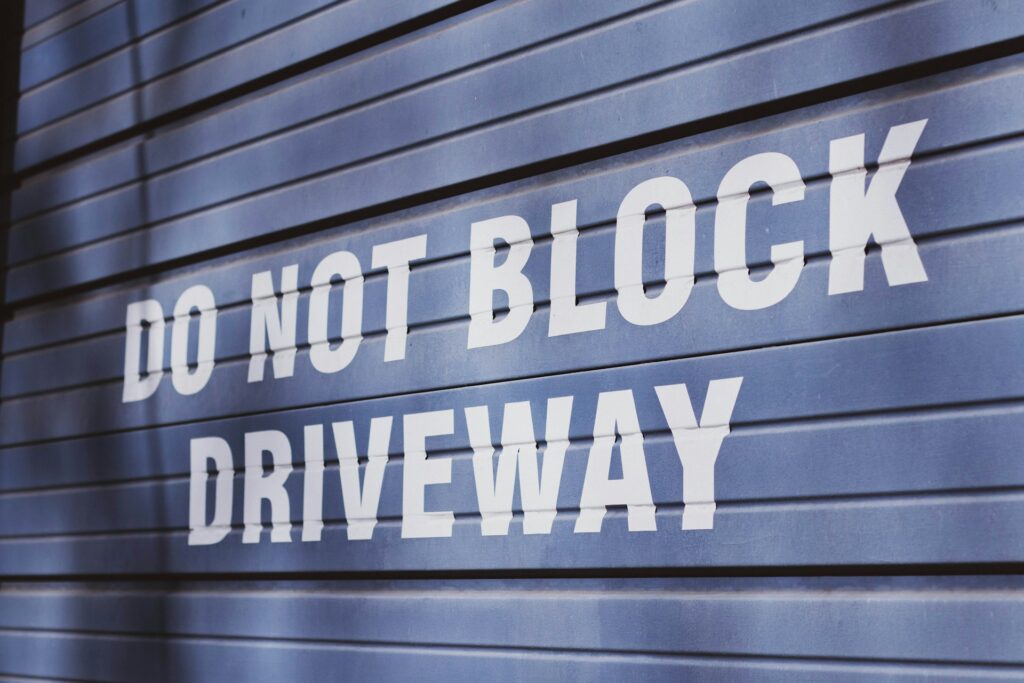Should I Buy a House with a Restrictive Covenant?

Estimated reading time 8 minutes
Purchasing a property can be a stressful time. Many of us have been there before and it’s safe to say, most of us have had to endure a few bumps in the road along the way. One such “bump” to ride is the restrictive covenant. But what is a restrictive covenant, and should you be buying a house with one?
In simple terms, a restrictive covenant is a condition that restricts what can be done with the property or land. In terms of whether you should be buying a house with restrictive covenants in place, it’s kind of up to you. You could find that you can buy at a lower-than-average price, but you could then also find it harder to sell in the future. In this edition of our blog, we take a look at restrictive covenants and whether you should buy a property that has them.
What is a restrictive covenant?
A restrictive covenant is a rule, written into the property deeds, that restricts what you can and cannot do with the property and land you own. This could mean limiting any work you do to extend or alter the property in any way. It could also relate to the changing of the buildings purpose. For example, changing a residential property to a commercial one. Often found in newly built developments and imposed by the landowner, restrictive covenants may look to maintain the areas of natural beauty surrounding the properties or reduce the chances of the neighbourhood being negatively affected by changes homeowners may wish to make. This could include things as small as adding a satellite dish or even the kinds of pets that can be housed. With such a variety of restrictions potentially in place, lenders can sometime be reluctant to offer a mortgage.
Restrictive covenants apply to the land the property sits on meaning they never transfer upon the sale of the home and once you buy the property, you are bound by the terms of them. This means, if there was a breach, you would be responsible for any penalty.
Why are restrictive covenants in place?
There are three main reasons why you may find restrictive covenants in place. These days they tend to be relatively straightforward but an article from The Telegraph back in 2017, illustrated how quirky some restrictive covenants have been in the past.
Today, we tend to see restrictive covenants in place to:
- Stop significant modifications to the property.
- Ensure no new buildings are built on the site.
- See that property stays used for its purpose as residential and not commercial.
The reasons for these being in place can vary, but often, especially on newer builds, it is because the developer wants to maintain a particular style for properties in the area. For the older properties with covenants in place, it could be that only specific maintenance is allowed in order to keep the property as authentic as possible.
How will I know if there is a restrictive covenant on the property I plan to buy?
You will not find this information through a simple browse in the estate agent window or on their website. It’ll be down to your conveyancer. This information should come to light during their searches. In doing so, they will also discover who owns what is known as the “benefit of covenant”. This is the person or group that handles the covenants. If you purchase a property and later find out there were restrictive covenants in place, yet the conveyancer had not disclosed them, you may be able to claim compensation if you were to one day breach a covenant.
Restrictive covenants examples
Restrictive covenants can include both relatively minor property alterations and those that are deemed extreme. Covenants you could see in place may include:
- Specific garden maintenance
- Restrictions as to which type of vehicle may be parked on the property.
- The addition of satellite dishes
- The types of animals that may be kept on the property.
- Whether you can add an extension
- Whether you can add more buildings to the land such as garden rooms or garages
There are, of course, a whole host of others that may be applied to a property, and this can make finding a property you wish to buy a little more challenging. That being said, if you have no plans to make alterations, are happy with the restrictions, and want to save a little money, a house with restrictive covenants can be a more affordable option if you can find a mortgage.
Is it harder to buy a house with restrictive covenants?
It can be. Lenders may be unwilling to lend as the re-sale opportunity of the property may be significantly less. You may have the means to make your monthly mortgage payments but if the worst happened, and you were no longer able to afford the home, the lender could see themselves having to force a quick sale and may find the pool of buyers much smaller due to the covenants in place.
In addition, lenders see the conditions of the covenants you are tied to as a risk. You have a duty to meet these demands and a lender may see that a gamble they don’t want to be associated with. This can either mean lenders not willing to offer a mortgage, or only doing so with higher fees and interest rates attached to it.
What happens if a restrictive covenant is breached?
As soon as the property becomes yours, you are responsible for adhering to the covenants that are in place and a breach could result in serious consequences.
Whether the breach was intentional or not, you may still be penalised. Penalties can vary but can range from a fine, through to being told to remove the modifications or alterations you have made to the property or land. You may even be breaching the covenants due to something the earlier owners have done and you had no involvement in.
With this potentially being extremely damaging financially, it may pay to have indemnity insurance in place. This can be a little complicated. Some policies are available when you purchase the house but may not cover all covenants, and this isn’t the kind of insurance that is just “off the shelf”. It requires your conveyancer to do the groundwork to get it organised. This will then protect you and any future owners from any penalties for breaching the covenants.
If you have chosen not to get indemnity insurance, or the previous owners did not organise any, you can apply for cover after a breach. If you have breached the covenant since you have been the homeowner, and more than twelve months have passed without any opposition, you can apply for a policy to cover you. However, should a breach have taken place, and it’s been opposed, you cannot apply for retroactive cover.
Can a restrictive covenant be removed?
If you are hoping the removal of a restrictive covenant may help you secure the mortgage and purpose of a property, you may not find it too easy. It can be a slow process and a costly one. You would need to see if the current homeowner is the landowner. If they are, you may be able to ask them about its removal. Citing that your mortgage will not be granted without the removal of covenants could help. This could see them remove it, or at least modify it. If they are not the landowner, they may be able to look at having the covenant removed by speaking to the landowner if they feel their chances of a sale have become limited. One thing to be wary of is that should a removal of the covenant be granted before you buy the property, the price of the home could rise quite fast.
If have recently bought the property and are looking to remove the restrictive covenant, you would need to speak to the landowner or developer and see whether there can be some form of agreement reached. Even if they are willing, you can expect to pay a fee and even legal costs for both sides. It is also possible to speak with the Lands Tribunal to request the removal or amendment of a restrictive covenant should you wish to make changes to the property or feel that the covenant is no longer relevant.
The removal of a covenant is not guaranteed and will all depend on the property, its location and the details of the covenant. Prior to speaking with a landowner or property owner, you should seek legal advice to have full clarity on what you will be able to do.
Buying a home with restrictive covenants can be complicated, especially if lenders are unwilling to help you with a mortgage. It can be the same for selling too. Reducing your buyers’ market by having a property that has restrictions in place on it can make the sales process slow, and expensive. You can remove that concern by speaking to Bettermove. We can facilitate the fast sale of any property, either through purchasing it ourselves, or presenting it to cash house buyers who are looking to invest. What’s more, we help you sell your house for free by removing the typical costs you find when selling property. Contact our team today and see how we can sell your house in days, not months.



